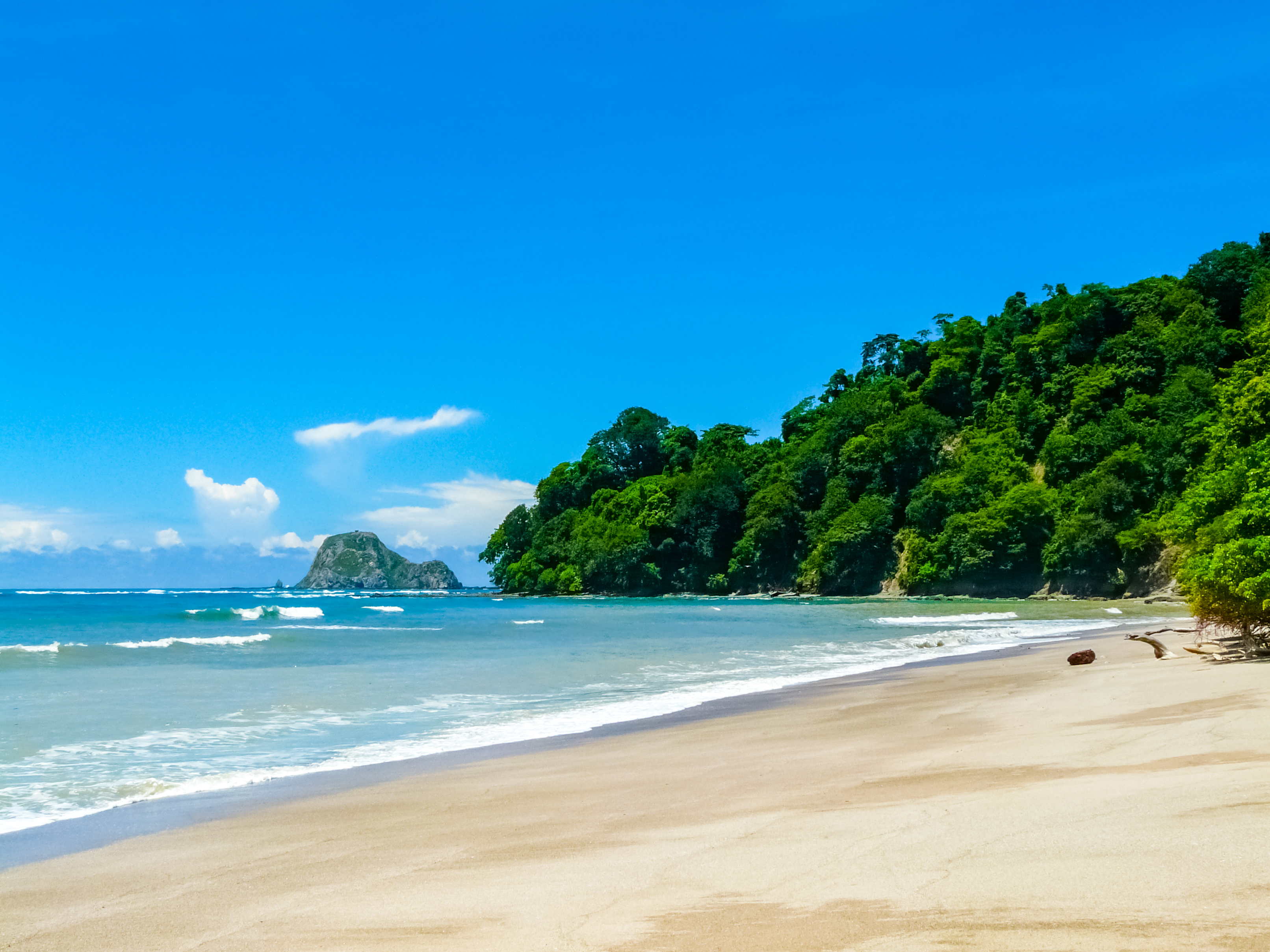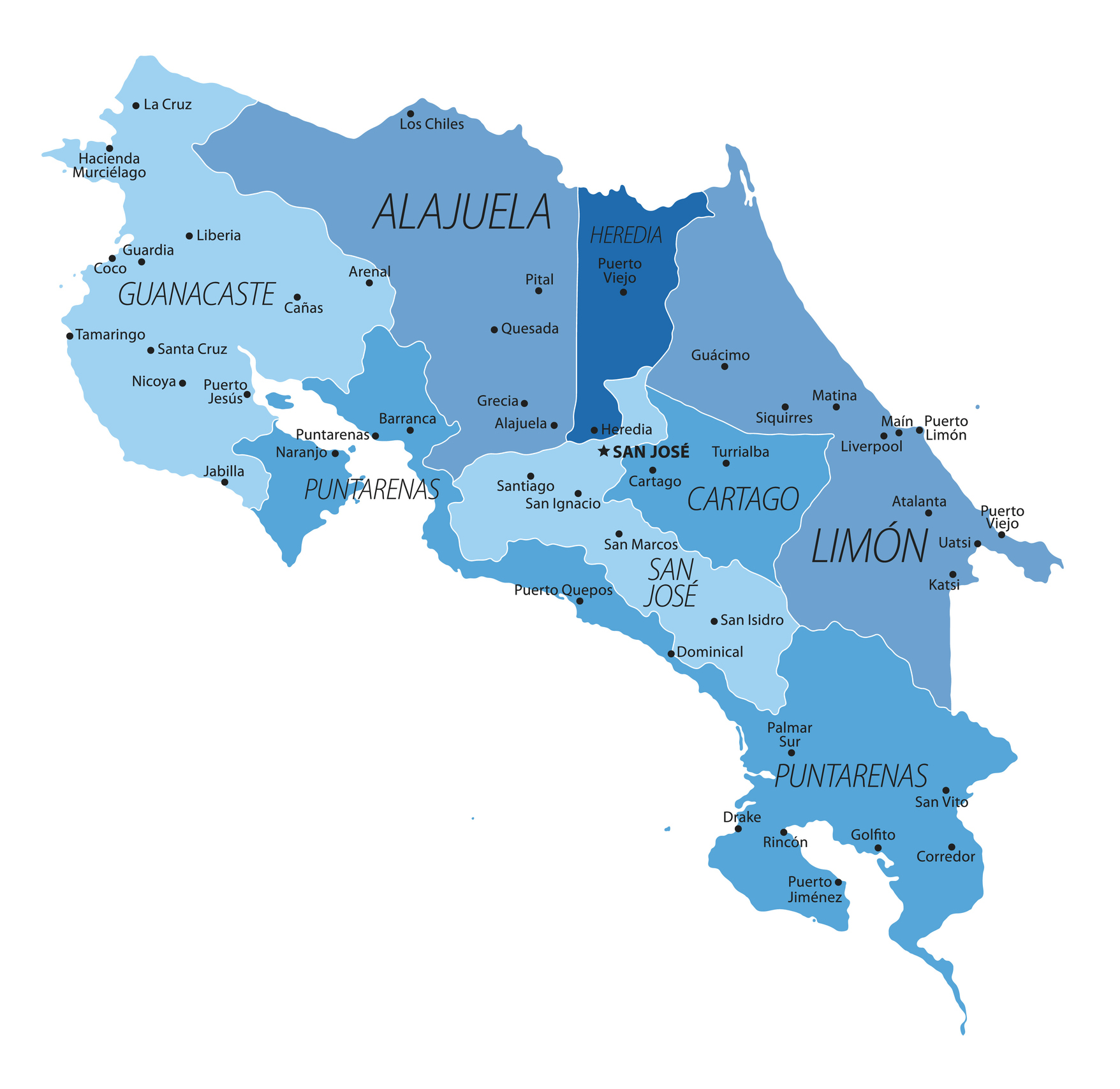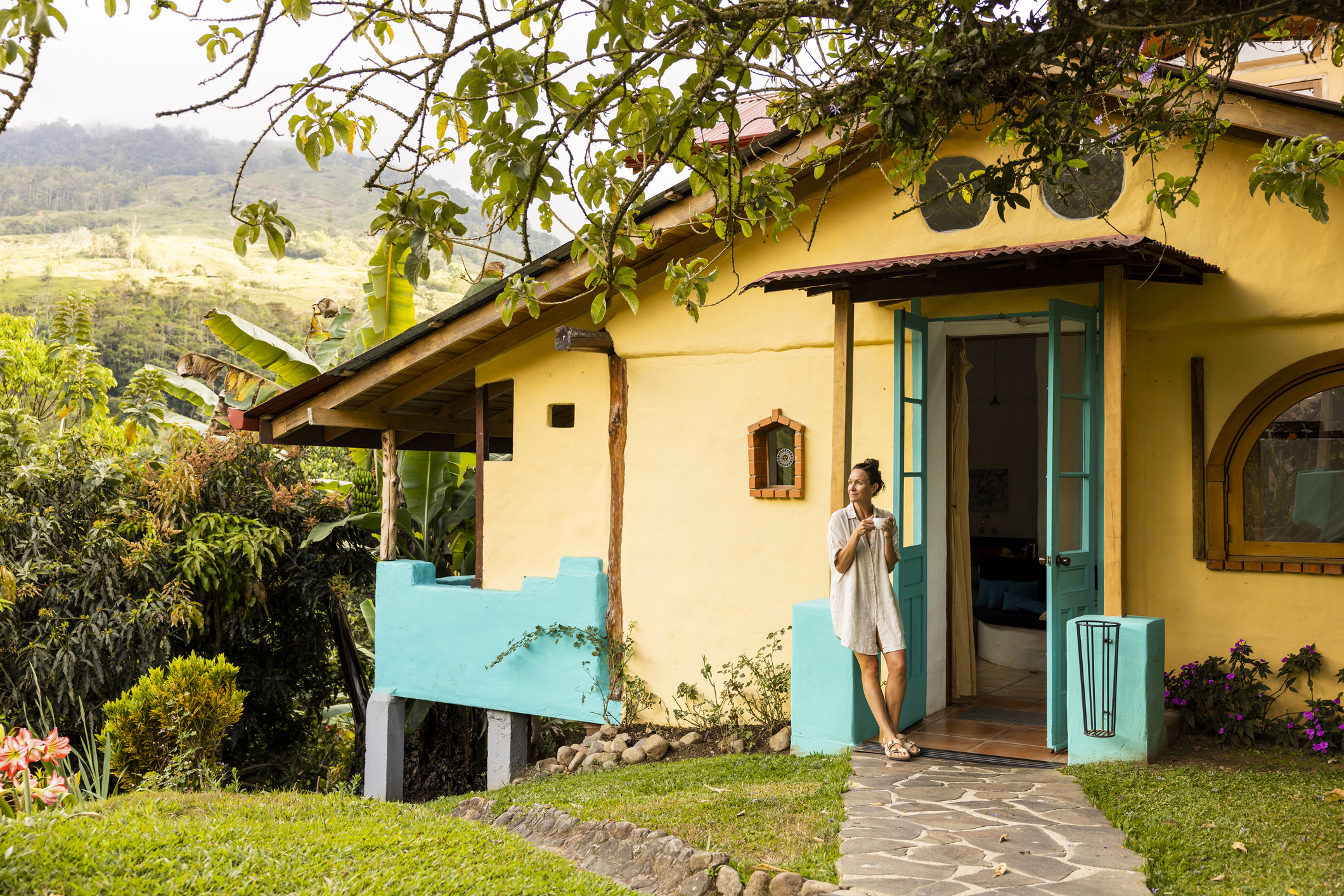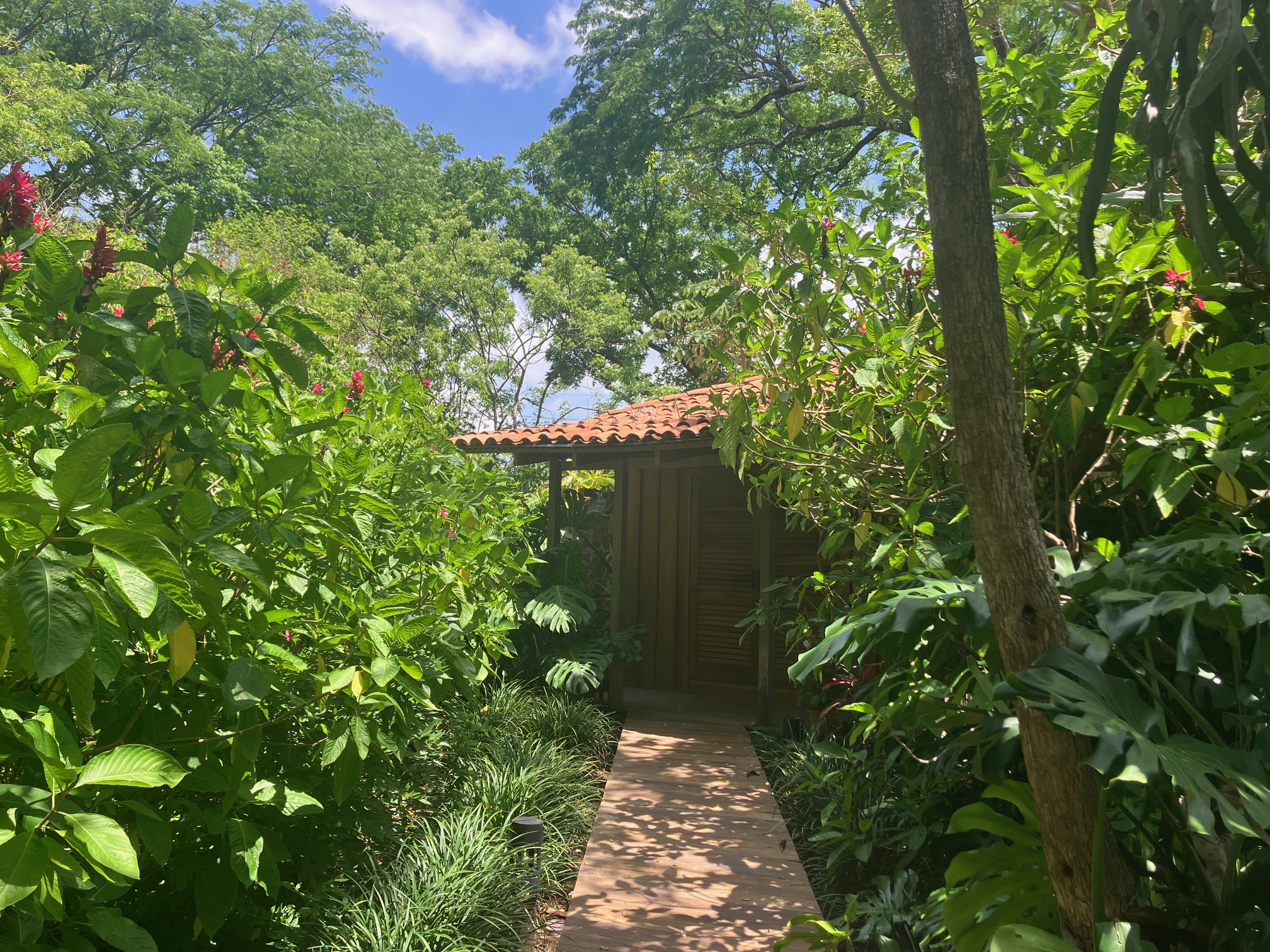Retire in Costa Rica for Expat Heaven
When you retire in Costa Rica, you get natural beauty, ease of relocation and affordability. Will you become a part of its thriving expat community?

Ellen B. Kennedy

Profit and prosper with the best of Kiplinger's advice on investing, taxes, retirement, personal finance and much more. Delivered daily. Enter your email in the box and click Sign Me Up.
You are now subscribed
Your newsletter sign-up was successful
Want to add more newsletters?

Delivered daily
Kiplinger Today
Profit and prosper with the best of Kiplinger's advice on investing, taxes, retirement, personal finance and much more delivered daily. Smart money moves start here.

Sent five days a week
Kiplinger A Step Ahead
Get practical help to make better financial decisions in your everyday life, from spending to savings on top deals.

Delivered daily
Kiplinger Closing Bell
Get today's biggest financial and investing headlines delivered to your inbox every day the U.S. stock market is open.

Sent twice a week
Kiplinger Adviser Intel
Financial pros across the country share best practices and fresh tactics to preserve and grow your wealth.

Delivered weekly
Kiplinger Tax Tips
Trim your federal and state tax bills with practical tax-planning and tax-cutting strategies.

Sent twice a week
Kiplinger Retirement Tips
Your twice-a-week guide to planning and enjoying a financially secure and richly rewarding retirement

Sent bimonthly.
Kiplinger Adviser Angle
Insights for advisers, wealth managers and other financial professionals.

Sent twice a week
Kiplinger Investing Weekly
Your twice-a-week roundup of promising stocks, funds, companies and industries you should consider, ones you should avoid, and why.

Sent weekly for six weeks
Kiplinger Invest for Retirement
Your step-by-step six-part series on how to invest for retirement, from devising a successful strategy to exactly which investments to choose.
There are so many reasons to retire in Costa Rica. Chief among them is that life is easy in the tropical land of “pura vida” — and so is making the decision to relocate to this small Central American country that extends from the Pacific Ocean to the Caribbean.
If you want to audition Costa Rica, you can settle there on a tourist visa for a year. The only catch is that after the first 180 days, you have to exit the country — make a border run — for at least one day before you can return for another 180 days. If you need to dash home, Juan Santamaría International Airport, located in San Jose, the country’s centrally located capital, offers three-hour flights to Miami, while you can be in Los Angeles in under six hours.
At less than 20,000 square miles, Costa Rica is around the size of West Virginia. But within that modest area, there is considerable lifestyle variety: You can live a city, suburban, rural life, a beach-bum surfer’s life, a verdant valley life, or a jungle life.
From just $107.88 $24.99 for Kiplinger Personal Finance
Become a smarter, better informed investor. Subscribe from just $107.88 $24.99, plus get up to 4 Special Issues

Sign up for Kiplinger’s Free Newsletters
Profit and prosper with the best of expert advice on investing, taxes, retirement, personal finance and more - straight to your e-mail.
Profit and prosper with the best of expert advice - straight to your e-mail.

If you hear more about the Pacific coast than the Caribbean coast, that’s because the east coast is rather rainy year-round, while the west coast and Central Valley enjoy a dry season from September to April. Temperatures are sultry, ranging from the 70s to the 90s during both seasons, so if you’re averse to heat, you’ll have to adapt to a midday siesta lifestyle — or seek out the higher elevations, which offer cooler weather.
Costa Rica has been an expat magnet for decades, with an estimated 70,000 Americans residing in a country of more than five million people. In addition to its other attributes, Costa Rica offers a high quality of life, inexpensively: A single person can live comfortably on around $1,500 a month, while a couple can be happy on as little as $2,500.
The country earns high marks not only for its lush beauty and affordability, but also for its stable democracy and salubrious, sustainable living.
Ana Brenes, an investment, real estate and relocation specialist with Costa Rica Investments, suggests that potential expats make “an intentional visit,” adding, “that’s what we try to help with.” She says that a real estate scouting tour should take into consideration “your lifestyle, your budget, and your needs. We need to find that sweet spot where all those elements come together. On the day of the tour, we visit those communities.” If clients are having trouble deciding, Brenes suggests renting, short- or long-term, in order to experience different communities.

Pacific paradise
Located in the northwest region of Guanacaste and easily accessible via Liberia Airport (aka Daniel Oduber Quirós International Airport), Peninsula Papagayo became known to high-net-worth travelers once the Four Seasons Resort planted its flag there in 2004. The upscale Andaz Costa Rica Resort followed nearly a decade later. Nekajui, a Ritz-Carlton Reserve, debuted in early 2025, solidifying the exclusive coastal enclave as a draw for expats.
Retirees who want to experience living in a freestanding house might want to base themselves in the opulent, beachfront Villa Avellana. This property can accommodate intergenerational families or groups of friends looking to explore the area for a possible relocation.
Most of Costa Rica’s touristic hotspots, transit hubs, and expat communities rest between Peninsula Papagayo and San Jose, including Puntarenas to the south (beaches plus a busy cruise terminal) and Tabacon to the east (famed for its thermal hot springs and access to fantastic hiking at the foot of Arenal Volcano).
For those who want to live within striking distance of San Jose, Brenes notes that Atenas — “the oldest expat community” — was once publicized as having the best weather in the world. “It’s one of those expat communities where you don’t just see Americans and Canadians; there are Europeans and Asians, as well — a little bit of everything,” she says. “This is a really close-knit community that is also intertwined with the locals, which I love.” Brenes also praises the rapidly growing but still charming Santa Ana, which is a 20-minute drive from San Jose, and the more remote Ojochal for its fine restaurants and stupendous landscape.
Brenes says that a car is all but essential for living in Costa Rica, even in a walkable town such as Atenas, noting that it would be typical to take a 10-minute drive to see a friend in a nearby community. But for those who want to give up driving, Brenes says that enlisting a driver, a taxi, or an Uber is no problem, as are other services, like housekeeping and gardening. “It’s the custom here,” she says. “Domestic help is very affordable” — $600 a month for a full-time cook and housekeeper, for example.

Visa and money matters
To put a fine point on it, Costa Rica has some of the most accessible visa programs of any desirable destination in the world. “You can actually apply for a visa while still living in the U.S.,” Brenes says. “There is no [in-country] requirement.” Brenes allows that U.S. politics have impacted the time it takes to process any type of visa. While she says that immigration officials are working as fast as they can, the 2024 election of President Trump caused visa demand to spike — and then it rose again in the spring of 2025.
Pensioners' visa: To start with the least arduous route, the Pensionado Visa is a type of temporary residence visa designed for retirees who depend on a fixed income through a retirement fund, annuity, or social security. The income threshold is quite low and easy to meet: $1,000 a month. After three years, the Pensionado Visa can become permanent. And after seven years in total (temporary plus permanent visas), you can apply for citizenship. Immediate family members (spouses and children) can be included in the same plan, along with the primary visa holder.
Visa holders have access to Costa Rica’s excellent public health care system, Caja Costarricense de Seguro Social. To take advantage of it, “You must enroll in Social Security,” Brenes says. “This is true with any type of visa.” The cost is based on a sliding scale reflective of the pensioner’s income. “If you are applying with a $1,000-per-month income,” Brenes notes, “the payment is going to be quite low, probably around $150 a month.” Income derived from outside Costa Rica is not taxed.
Renters' visa: The Rentista Visa is a good option for those who aren’t on a fixed income, so it’s appropriate for early retirees who haven’t yet opted for early social security and haven’t begun to draw from their IRAs or 401(k)s. (Required minimum distributions become mandatory at age 72 or 73, depending on your date of birth, but you can opt to withdraw funds starting at age 59½, which means the oldest Gen Xers—born in December 1965—will hit that age in June 2025. How’s that for a wakeup call?)
The income threshold for the Rentista Visa — $2,500 per month — is higher than the Pensionado Visa’s minimum. If you have $60,000 to deposit into a Costa Rican bank, that will also fulfill the requirement. In most other respects, from health insurance to permanent status to citizenship, the Rentista Visa mirrors the Pensionado.
Digital Nomad visa: For expat retirees who expect to do a reasonable amount of remote work, the Digital Nomad Visa might be the ticket. Though it requires a monthly income of $3,000 (for an individual), the process is much faster and easier than that of the above visas — you can score this type of visa in a few months rather than wait a year or so. Though the stereotype of a digital nomad is a 25-year-old with dreadlocks, you can be a digital nomad in Costa Rica at any age. Note that the Digital Nomad Visa lasts for one year, with a one-year option to renew up to five years.
There is something for everyone in terms of Costa Rican visa options. In addition to the choices above, one might choose the Inversionista Visa (Investor's Visa) by investing in real estate or a business for a minimum of $150,000.
Costa Rica has a high quality of life
If you think Costa Rica is an undeveloped country, you'll be surprised to learn that it surpasses or equals the U.S. in several areas. Here are some examples.
Metric | Costa Rica | United States | Header Cell - Column 3 |
|---|---|---|---|
Life expectancy (baby born in 2023) | 81 years | 78 years | Row 0 - Cell 3 |
Rank on the World Happiness Report, 2025 (lower rank is better) | 6 | 24 | Row 1 - Cell 3 |
Rank on Global Peace Index (lower rank is more peaceful) | 58 | 132 | Row 2 - Cell 3 |
Literacy rate in 2024 | 98% | 99% | Row 3 - Cell 3 |
In addition to its efforts around literacy and public health, the Costa Rican government has prioritized environmental sustainability, in part because its wildlife, forests, and pristine beaches are a key draw for tourists. Over 25% of its land is protected, and thanks to zoning laws, when you head to the beach, you won't see high rises or billboards right by the water.
On the other hand, Costa Rica struggles economically, with 25.5% of its population living in poverty, compared to 18% in the U.S., according to 2024 World Bank data.

Living in Costa Rica: The takeaway
“Costa Rica brings you back to basics in terms of the things that are really valuable,” Brenes says, and she describes the kind of environment where long-lasting relationships are struck at the farmer’s market. People live a comfortable, even affluent life, yet have a strong sense of community.
So, if you’re looking for natural physical beauty, ease of relocation, and affordability — within an established expat atmosphere that overlaps with local conviviality — Costa Rica might be the perfect place for you.
Related content
- Retire in Italy for Culture and Beauty
- Retire in Greece for Relaxed Living With a Cinematic Backdrop
- Retire in Thailand Where 'The White Lotus' Was Filmed
- Retire in Mexico: Get a Lower Cost of Living Near the US
- Where to Retire: Living in Portugal as a US Retiree
- Where to Retire: Living in the Dominican Republic
- Where to Retire: Living in Panama Offers Stability and Charm
- Where to Retire: Living in Brazil Is More Than Carnival, Coffee and Copacabana
- Where to Retire 2025: Puerto Rico
Profit and prosper with the best of Kiplinger's advice on investing, taxes, retirement, personal finance and much more. Delivered daily. Enter your email in the box and click Sign Me Up.

Drew Limsky joined Kiplinger Digital as a freelance retirement writer because he believes that every day offers opportunities to make better financial decisions, and that it’s never too late to learn how to enhance your financial position and lifestyle. Drew is the former editor of Lexus magazine, Cadillac magazine, South Florida Business & Wealth, Business Jet Traveler, Interiors South Florida, and Mariner (for Holland America). Drew’s writing credits include The Wall Street Journal, New York Times, LA Times, Washington Post, Boston Globe, Yahoo, Worth, AD, Robb Report, Metropolis, Men’s Journal, and Business Insider. An Emory grad, Drew earned his JD and PhD at NYU, and lives in Miami Beach, Brooklyn, and Cape Cod.
- Ellen B. KennedyRetirement Editor, Kiplinger.com
-
 Quiz: Do You Know How to Avoid the "Medigap Trap?"
Quiz: Do You Know How to Avoid the "Medigap Trap?"Quiz Test your basic knowledge of the "Medigap Trap" in our quick quiz.
-
 5 Top Tax-Efficient Mutual Funds for Smarter Investing
5 Top Tax-Efficient Mutual Funds for Smarter InvestingMutual funds are many things, but "tax-friendly" usually isn't one of them. These are the exceptions.
-
 AI Sparks Existential Crisis for Software Stocks
AI Sparks Existential Crisis for Software StocksThe Kiplinger Letter Fears that SaaS subscription software could be rendered obsolete by artificial intelligence make investors jittery.
-
 Quiz: Do You Know How to Avoid the 'Medigap Trap?'
Quiz: Do You Know How to Avoid the 'Medigap Trap?'Quiz Test your basic knowledge of the "Medigap Trap" in our quick quiz.
-
 We Retired at 62 With $6.1 Million. My Wife Wants to Make Large Donations, but I Want to Travel and Buy a Lake House.
We Retired at 62 With $6.1 Million. My Wife Wants to Make Large Donations, but I Want to Travel and Buy a Lake House.We are 62 and finally retired after decades of hard work. I see the lakehouse as an investment in our happiness.
-
 Social Security Break-Even Math Is Helpful, But Don't Let It Dictate When You'll File
Social Security Break-Even Math Is Helpful, But Don't Let It Dictate When You'll FileYour Social Security break-even age tells you how long you'd need to live for delaying to pay off, but shouldn't be the sole basis for deciding when to claim.
-
 I'm an Opportunity Zone Pro: This Is How to Deliver Roth-Like Tax-Free Growth (Without Contribution Limits)
I'm an Opportunity Zone Pro: This Is How to Deliver Roth-Like Tax-Free Growth (Without Contribution Limits)Investors who combine Roth IRAs, the gold standard of tax-free savings, with qualified opportunity funds could enjoy decades of tax-free growth.
-
 I'm a Wealth Adviser Obsessed With Mahjong: Here Are 8 Ways It Can Teach Us How to Manage Our Money
I'm a Wealth Adviser Obsessed With Mahjong: Here Are 8 Ways It Can Teach Us How to Manage Our MoneyThis increasingly popular Chinese game can teach us not only how to help manage our money but also how important it is to connect with other people.
-
 Global Uncertainty Has Investors Running Scared: This Is How Advisers Can Reassure Them
Global Uncertainty Has Investors Running Scared: This Is How Advisers Can Reassure ThemHow can advisers reassure clients nervous about their plans in an increasingly complex and rapidly changing world? This conversational framework provides the key.
-
 5 Ronald Reagan Quotes Retirees Should Live By
5 Ronald Reagan Quotes Retirees Should Live ByThe Nation's 40th President's wit and wisdom can help retirees navigate their financial and personal journey with confidence.
-
 I'm a Real Estate Investing Pro: This Is How to Use 1031 Exchanges to Scale Up Your Real Estate Empire
I'm a Real Estate Investing Pro: This Is How to Use 1031 Exchanges to Scale Up Your Real Estate EmpireSmall rental properties can be excellent investments, but you can use 1031 exchanges to transition to commercial real estate for bigger wealth-building.